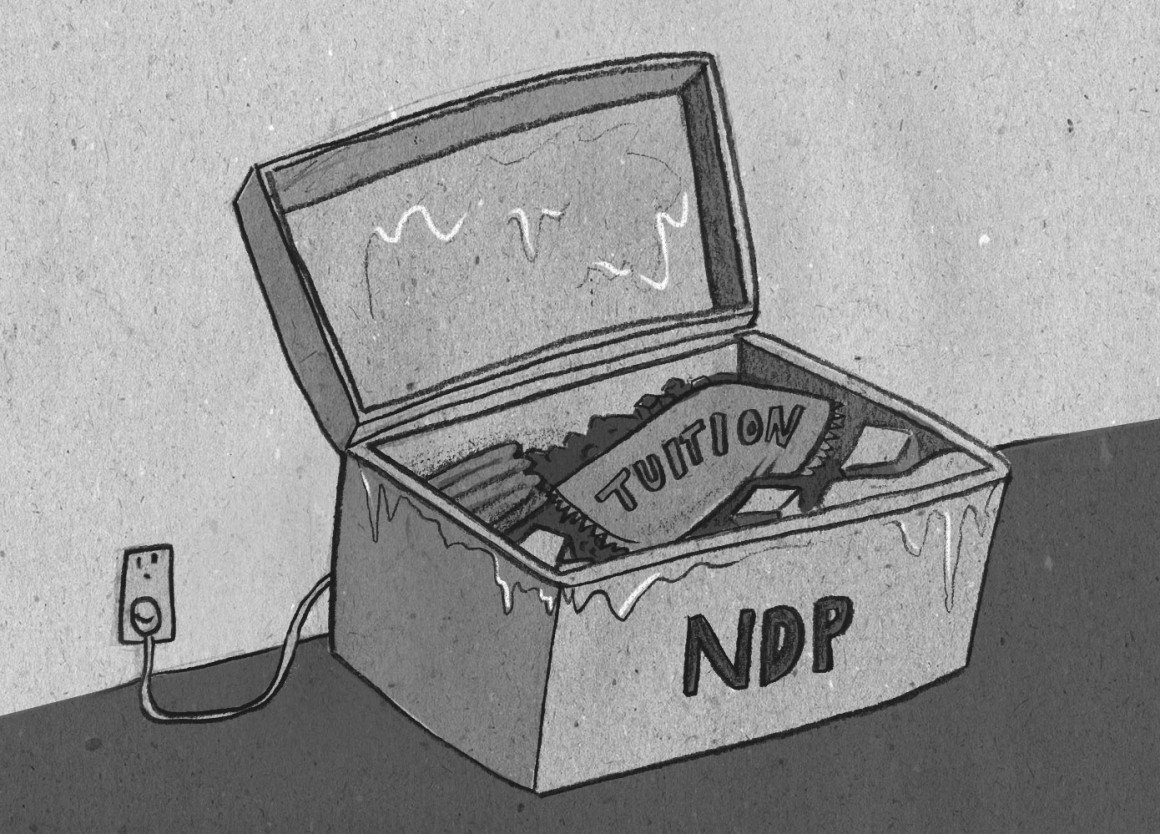
Universities need stable funding
By Fabian Mayer, June 4 2015 —
Post-secondary education in Alberta has seen significant funding cuts in two of the last three years. This has resulted in degree-specific tuition increases known as market modifiers, fee hikes and program cuts across the province.
During the election campaign, the New Democratic Party made numerous promises to post-secondary institutions and students. But until the party tables its first budget, these promises remain just that — promises.
Despite the optimism surrounding the new government, Alberta’s financial woes haven’t disappeared. At $60 a barrel, the price of oil remains relatively low, and it doesn’t show any signs of quickly returning to last year’s highs.
When the NDP produces its first budget in the fall, it will almost certainly include a deficit. Tough spending decisions will have to be made and it’s unlikely the party will be able follow through on everything in its election platform.
Even so, some of the NDP’s promises may help more than others.
The NDP’s platform includes a promise to “implement a real tuition freeze” in the province. The party also planned to “roll back” the most recent market modifier fee hikes approved by the PCs in December of last year.
Students facing ever-rising costs would welcome both of these plans. However, if the NDP follows through on these promises, it is crucial that post-secondary funding is not only restored to pre-cut levels, but boosted further.
Market modifiers were seen as necessary by post-secondary institutions because their funding had been cut so drastically. If the NDP reverses them without providing adequate funding alternatives, they may create more problems than they solve.
It’s also unclear what a tuition freeze would entail. The best idea would be retaining the current cap on tuition, which allows it to rise at the rate of inflation, while simultaneously closing market modifier loopholes. It would keep the cost of education predictable and make institutions somewhat less vulnerable to shortfalls in government funding.
A true freeze, where tuition could not be increased in any way, would make post-secondary institutions almost entirely reliant on government funding. If that amount did not regularly increase, universities would have few alternative funding sources and programs would have to be axed.
The NDP must think carefully about how it deals with students and post-secondary. Closing tuition loopholes to ensure universities remain accessible is a good idea. But completely freezing tuition as the cost of providing education continues to rise is irresponsible.
